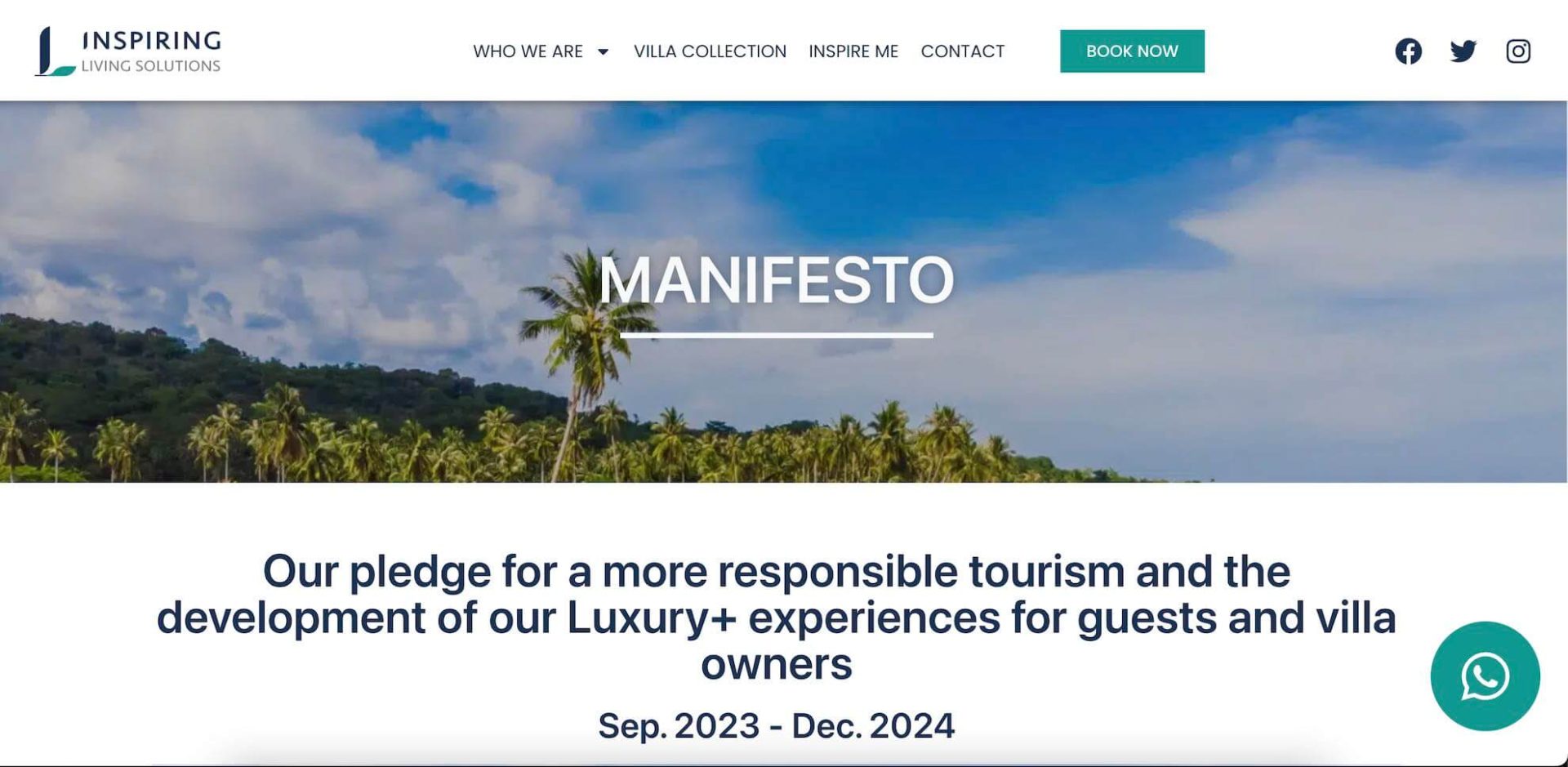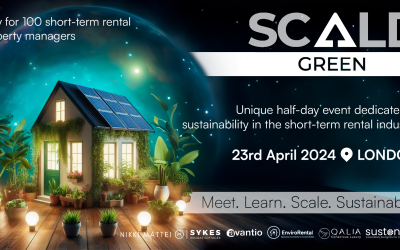There are two new words in the global dictionary: ‘greenwashing’ and ‘greenhushing’. The former is probably more well-known with ‘how to avoid greenwashing’ becoming a phrase that is cropping up with increased frequency. Greenhushing is a more recent concept but is just as important. These two elephants in the room need to be brought into the open and not seen as barriers to responsible tourism.
A threat or opportunity for luxury travel?
In the realm of luxury travel, responsible tourism and conscious luxury have become topics of heightened interest. As the world gravitates towards environmental and socially just choices, the dialogue in luxury tourism increasingly centres on responsible practices. However, this conversation is often held back, primarily due to two prevalent phenomena: greenwashing and greenhushing.
In this article, we aim to dispel the myths and misconceptions, empowering you to make the most of the opportunities that responsible tourism presents. By aligning luxury with responsibility, you can become a leader in the industry. In this way, luxury travel becomes synonymous with the values of the triple bottom line: people, planet, and prosperity.
What is greenwashing?

Photo by Unsplash – Carlos Muza
There is no doubt that there is a trend towards more environmentally friendly products and services as the climate crisis intensifies. Consequently, increasing numbers of brands are taking advantage of this and promoting their green credentials. Greenwashing can occur when a company makes ‘green’ claims which are not substantiated by facts and data.
It is important to recognise that most businesses do not set out to actively make false claims. Sustainability marketing is still a relatively new concept for marketing teams, who may not have been well-briefed. Hence, greenwashing accusations usually arise when a ‘green’ marketing campaign cannot provide robust evidence to back up those claims. Opting for a third-party verification helps businesses take onboard environmental and social initiatives whilst receiving advice on best practice communication.
However, there are incidences of deliberate greenwashing and, quite rightly, there is legislation in place to penalise this in many parts of the world. The Competition and Markets Authority in the UK, the EU Green Claims Directive and the Federal Trade Commission in the U.S. are examples of this.
Brands who make false unsubstantiated claims about their environmental or ethical credentials can be accused of greenwashing
What is greenhushing?

Photo by Unsplash – Kristina Flour
‘Greenhushing’ is a much less well-known phenomenon but it is equally important. It is the practice of under-communicating genuine sustainable actions, which, in turn, stifles the sharing of best practices and innovations. For a luxury brand’s image specifically, it can have a serious negative impact. By not communicating their efforts, it could be perceived that the business does not care and is not implementing any responsible practices. On a larger scale, this silence is slowing down the collective progress towards responsible tourism.
Many businesses in the luxury accommodation sector are unaware that they are already part of responsible tourism. It is widely recognised that conscious luxury is synonymous with world-leading innovation and the highest levels of quality. In the context of private villas, many feature technologies like solar panels, green building materials and eco-friendly amenities. In addition, they may already be supporting local conservation or community projects in their destination.
However, if they do not share the responsible initiatives they are taking, they are actually missing out on a number of different levels. We know that travellers are increasingly drawn to conscious luxury and are interested in understanding the ways in which a property is part of this way of living. As already mentioned, the other important consideration is the need to encourage others to be part of responsible tourism. In most industries, it is the luxury sector who is leading the way, allowing the rest of the industry to follow. Consequently, private villa owners and management companies have a responsibility and opportunity to become pioneers and trailblazers.
Businesses who do not proudly share their commitment to responsible tourism and conscious luxury are demonstrating greenhushing
How to avoid greenwashing

Photo: Inspiring Living Solutions (Thailand)
In fact, it is relatively easy to avoid greenwashing if you follow the principles of honesty and transparency. Consumers these days are very savvy and will quickly realise if a brand is not authentic or is exaggerating its eco claims.
As a private luxury villa, the smartest approach is to identify the responsible practices and amenities you already have in place. Are these clearly visible to guests and do you have the evidence to substantiate them? Then think about why guests book with you. Consider the type of impacts that are relevant to your destination and would appeal to your guests. If you are in a coastal location, marine conservation and removing single-use plastic in your property are issues which could be relevant.
Follow these guidelines when considering how to avoid greenwashing:
- Acknowledge the Conscious Luxury Journey: Understand that implementing responsible practices is a continuous process. Communicate openly about your progress and the steps you are taking. The most important aspect is that you have made a start.
- Support Claims with Data: Back up all environmental claims with data and evidence. Avoid making vague or unsubstantiated statements that could be perceived as greenwashing.
- Focus on Impact: Prioritize initiatives where you have the most impact or which are most relevant to your brand. This resonates with guests and enhances the guest experience.
- Regular Assessment: Continuously measure and report on your impact and achievements, maintaining transparency in your journey.
- Third-Party Verification: Adopt a responsible tourism standard like QALIA to lend credibility and help travellers identify places to stay which are committed to conscious luxury.
How to avoid greenhushing

Companies who could be accused of greenhushing can very easily turn the situation around to their advantage. If they are greenhushing, it automatically means that they have environmental and social credentials that they are hiding. Undoubtedly, their actions come from a place of fear that they could be accused of greenwashing.
This silent approach is obstructing opportunities for you to attract the growing community of conscious travellers as well as stifling your chance to be a leader in conscious luxury travel.
Follow these steps to proudly promote yourself as a conscious luxury rental brand.
- Start by following the guidelines above on how to avoid greenwashing.
- Review your current marketing strategy and ensure that you make responsible tourism one of your brand pillars.
- Get verified by a third-party standard like QALIA in order to demonstrate credibility to the growing numbers of eco conscious high-net worth travellers.
- Use your conscious luxury amenities and experiences to create rich new content across all your marketing channels.
- Take this content to create an appealing narrative and imagery for discerning luxury travellers.
- Learn from and collaborate with other conscious luxury brands in complementary industries
QALIA offers you third-party credibility
One of the simplest and most effective ways to avoid greenwashing and greenhushing is to gain a third-party verification. Consumers can be skeptical of self-declared labels or marketing phrases created by brands themselves, which leads to low trust in environmental claims.
When you decide to become a QALIA Member, you will gain access to your online certification management system dashboard. Here you can enter all the relevant achievements at your property, track your progress over time and consult the extensive knowledge base to make further progress. Accordingly, this will create a benchmark for setting targets aided by the QALIA team, who will help you with the data entry and development of goals. Using the QALIA framework, you will be able to develop your own ‘responsible tourism manifesto’, which you can share with all your stakeholders.
By using the QALIA label and detailing your practices in your marketing content, you will be clearly declaring that you have been verified by a third party. Consequently, this will identify you as a leader in responsible tourism and as a property raising awareness of conscious luxury principles. You will also benefit from QALIA’s PR campaigns and partnerships with specialist agencies and organisations in conscious luxury travel.
When sharing one’ practices related to responsible tourism, we recommend our members to apply conscious communication rules that will safeguard them. It is not about how much or how little they do, it’s about the fact they simply do.” Marc Ribail, CEO and Founder of QALIA
Join us and become a responsible tourism leader
Conscious luxury and responsible practices are already apparent within the hotel sector and the private villa sector needs to catch up. Becoming a QALIA Member will empower you to take the first steps towards being recognised as a conscious luxury brand. Importantly, going through our framework will help you to avoid greenwashing and greenhushing. We invite you to book an introductory call with our Founder, Marc Ribail.










